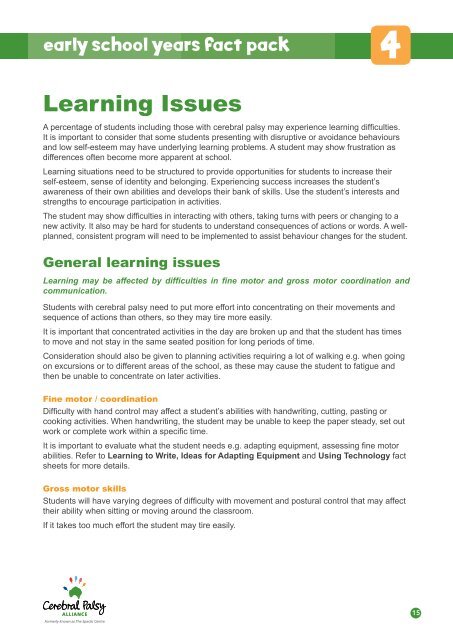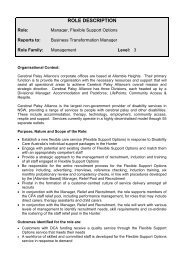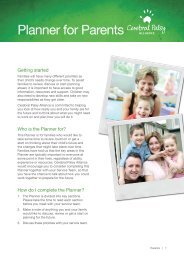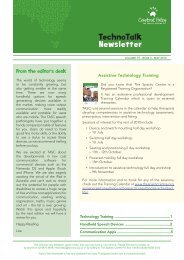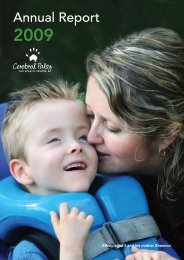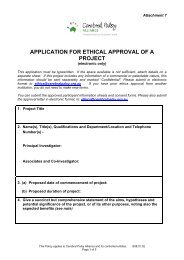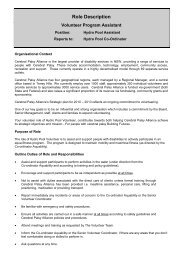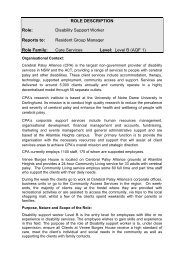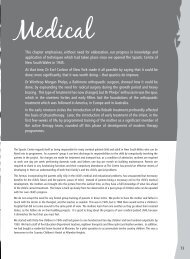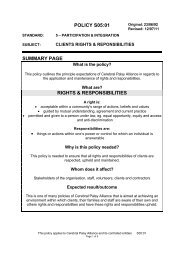Early School Years Fact Pack - Cerebral Palsy Alliance
Early School Years Fact Pack - Cerebral Palsy Alliance
Early School Years Fact Pack - Cerebral Palsy Alliance
Create successful ePaper yourself
Turn your PDF publications into a flip-book with our unique Google optimized e-Paper software.
early school years fact pack<br />
4<br />
Learning Issues<br />
A percentage of students including those with cerebral palsy may experience learning difficulties.<br />
It is important to consider that some students presenting with disruptive or avoidance behaviours<br />
and low self-esteem may have underlying learning problems. A student may show frustration as<br />
differences often become more apparent at school.<br />
Learning situations need to be structured to provide opportunities for students to increase their<br />
self-esteem, sense of identity and belonging. Experiencing success increases the student’s<br />
awareness of their own abilities and develops their bank of skills. Use the student’s interests and<br />
strengths to encourage participation in activities.<br />
The student may show difficulties in interacting with others, taking turns with peers or changing to a<br />
new activity. It also may be hard for students to understand consequences of actions or words. A wellplanned,<br />
consistent program will need to be implemented to assist behaviour changes for the student.<br />
General learning issues<br />
Learning may be affected by difficulties in fine motor and gross motor coordination and<br />
communication.<br />
Students with cerebral palsy need to put more effort into concentrating on their movements and<br />
sequence of actions than others, so they may tire more easily.<br />
It is important that concentrated activities in the day are broken up and that the student has times<br />
to move and not stay in the same seated position for long periods of time.<br />
Consideration should also be given to planning activities requiring a lot of walking e.g. when going<br />
on excursions or to different areas of the school, as these may cause the student to fatigue and<br />
then be unable to concentrate on later activities.<br />
Fine motor / coordination<br />
Difficulty with hand control may affect a student’s abilities with handwriting, cutting, pasting or<br />
cooking activities. When handwriting, the student may be unable to keep the paper steady, set out<br />
work or complete work within a specific time.<br />
It is important to evaluate what the student needs e.g. adapting equipment, assessing fine motor<br />
abilities. Refer to Learning to Write, Ideas for Adapting Equipment and Using Technology fact<br />
sheets for more details.<br />
Gross motor skills<br />
Students will have varying degrees of difficulty with movement and postural control that may affect<br />
their ability when sitting or moving around the classroom.<br />
If it takes too much effort the student may tire easily.<br />
15


